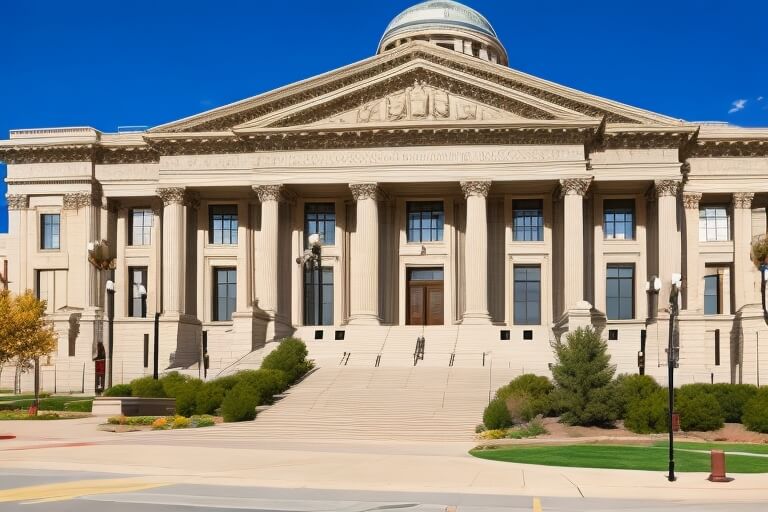The highest judicial body in Colorado has declared that Donald Trump does not meet the requirements to seek the presidency based on the disqualification clause related to rebellion within the US Constitution. This decision surfaces as the previous head of state gears up for a presidential bid in 4.
 Allegations have surfaced that Trump spurred on disturbances at the Capitol to challenge his electoral defeat in 2020. This Colorado court verdict paves the way for a potentially decisive battle in the US Supreme Court, which holds the ultimate authority on constitutional issues. This could determine if the leading contender for the Republican endorsement is permitted to continue his campaign for the nation’s leadership.
Allegations have surfaced that Trump spurred on disturbances at the Capitol to challenge his electoral defeat in 2020. This Colorado court verdict paves the way for a potentially decisive battle in the US Supreme Court, which holds the ultimate authority on constitutional issues. This could determine if the leading contender for the Republican endorsement is permitted to continue his campaign for the nation’s leadership.
Trump’s team has indicated their intention to challenge this verdict at the US Supreme Court. In a statement issued on Tuesday evening, Trump campaign representative Steven Cheung criticized the ruling: “The decision by the Colorado Supreme Court is deeply flawed. We will promptly seek an appeal with the United States Supreme Court and concurrently ask for a stay against this undemocratic ruling.”
With this decision, the Colorado judiciary has stricken Trump’s name from the state’s primary election list. This signifies that, at present, Colorado’s electorate can’t select Trump in the next presidential polls. Nevertheless, the judgment doesn’t bar him from vying in other parts of the country.
Colorado’s authorities have emphasized that the resolution needs to be finalized by January 5, which is when they have to begin printing the primary ballots. The majority of the court maintains that under the 14th Amendment’s Section 3, Trump is not eligible to serve as president,” the decision read, in a close 4-3 split verdict. This is an unprecedented application of the 14th Amendment’s Section 3 to disqualify a candidate for the presidency.
Trump has faced a barrage of legal actions nationwide seeking to invalidate his candidacy using Section 3, which originated post-Civil War to prevent former rebels from regaining government positions. This clause disqualifies any individuals from government roles if they have pledged to uphold the Constitution but then acted in rebellion or insurrection against it, although it has rarely been invoked since the years following the Civil War.
The ruling by Colorado’s justices, all appointed by Democratic governors, reverses a lower court’s decision that, despite the finding that Trump provoked an uprising before the Capitol events on January 6, 2021, he should not be removed from the ballot due to ambiguity over whether this clause applies to presidential eligibility.
The Colorado court has expressed its understanding of the gravity of its decision: “Arriving at these judgments has not been taken lightly. We are acutely aware of the profound and weighty considerations we face, coupled with our solemn obligation to enforce the law without prejudice, unaffected by public sentiment.”
Despite losing Colorado by a significant margin in the prior election, Trump doesn’t necessarily need the state to claim victory in the upcoming presidential race. The real peril lies in the possibility that other jurisdictions might emulate Colorado’s action and bar Trump from critical battleground states.